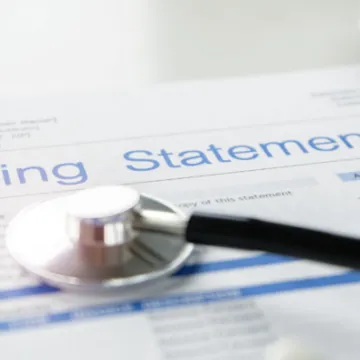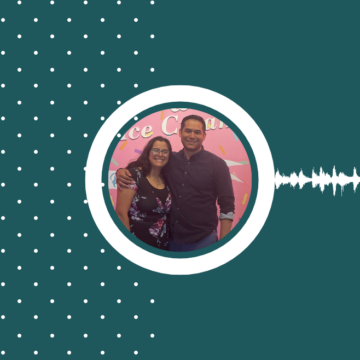Debt management programs (DMPs) typically simplify repayment and reduce interestsimplify repayment and reduce interest, but only certain types of debt—mainly unsecured debt like credit cards and medical bills—are eligible.
Secured and court-ordered debts, such as mortgages, auto loans, child support, and tax debt, generally can’t be included in a DMP, but free financial counseling can still help you manage them alongside other obligations.
Knowing which debts qualify for a DMP allows you to build a realistic repayment strategy and take meaningful steps toward long-term financial stability.
Debt is complicated.
While a debt management program (DMP)debt management program (DMP) is an effective tool to manage debt, not all types of debt are eligible for DMPs.
To best address your debt situation, it’s important to know what types of debts can be included in a debt management program, and which ones can’t. That way, you can build an effective payment strategy.
We’ll begin with a brief definition of DMPs and then get into the nitty-gritty of debt types, including which ones a DMP can help you with. By the end, you’ll be more equipped to tackle your debt.
You’re on the path now.
Debt Management Program: A Brief Overview
A debt management program (DMP) is a structured repayment plan typically supported by a nonprofit agency, such as GreenPath. It may offer the following benefits:
- Reduces or stops collection contacts (letters, calls, texts, and emails).
- Provides you with a personalized debt management plan.
- Consolidates eligible debts into a single monthly payment.
- Lowers interest rates and waived fees, depending on creditor agreement.
- Includes a supportive team who helps you stay on track.
- Eliminates your debt typically between 3 to 5 years.
But your eligibility for a DMP depends on the type of debt you have—which we’ll dig into in a moment. But first we want to remind you that…
High Debt Is All Too Common
If you feel burdened with debt, you’re not alone: American household debt reached an all-time high in 2025, for a total of $18.388 trillion (averaging $105,056 per household).
- A recent Experian study shows that every generation carries significant credit card balances. Gen X leads with an average of $9,557, while Millennials and Baby Boomers follow ($6,932 and $6,754, respectively.)
- Total personal loan balances reached a record high of $253 billion (as of the first quarter of 2025), with the average unsecured personal loan balance amounting to $11,676.
- Polling data shows nearly half of adults report having medical debt, affecting “disproportionate shares of Black and Hispanic adults, women, parents, those with low incomes, and uninsured adults.”
Does any of this reflect your situation? If so, read on. It’s time to get into the kind of debt you can handle with a DMP.
Debts Typically Included in a DMP (Non-Priority Debts)
DMPs focus on unsecured debt, which is debt not secured by collateral.
In other words, there are no assets backing this debt that the lender can seize if you don’t pay. This is also why we refer to unsecured debt as non-priority debt.
Here are non-priority debts you may be carrying that may be eligible for a DMP.
Credit Card Balances
It probably won’t surprise you that this is the most common type of debt included in DMPs.
Credit cards can be helpful in a pinch, given their revolving nature. But purchases can add up quickly—that’s why credit card debt can be so debilitating. It can be especially hard to pay down your credit card balances when APRs are surging, averaging between 20% and 27%. No wonder nearly half of credit card holders carry a balance.
Through a DMP, credit card balances are typically consolidated into a structured repayment plan with reduced interest rates (depending on creditor agreement). This means more of your monthly payment goes toward the principal rather than being eaten up by interest chargesinterest charges.
Over time, this structure makes it possible to break the cycle of minimum payments and steadily work down balances until you’re debt-free.
Medical Debt
Also typically included in DMPs, medical debt tends to come from health emergencies or gaps in insurance.
Many of us have been there: after a doctor or hospital visit, you get that unreasonably high medical bill in the mail, and there’s no way you can pay it all off at once.
Fortunately, it can be addressed through a DMP—though not all providers include medical debt (GreenPath does, however).
It’s not surprising that medical debt can actually contribute to medical problems. Rolling medical debt into a DMP not only helps you regain control of your finances but also creates space to focus on recovery and health without the constant worry of collection calls or growing balances.
Store Cards and Retail Financing
Buy-now-pay-laterBuy-now-pay-later is so convenient, which is why these programs have become popular. They’re enticing, especially when you’re eager to make a purchase. For that reason, you can see how BNPL can cause your total debt to balloon quickly.
Store cards and retail financing fall into a similar category.
Fortunately, all of these are often included in a DMP and are typically treated like credit card debt.
Sometimes simply calling your bank or credit union and explaining your situation can be enough to get some of these removed. There are other tips to protect yourself from overdraft feesprotect yourself from overdraft fees, and they can also be included in your DMP.
Debts Typically Not Included in a DMP (Priority Debts)
Now let’s talk about secured debts, those backed by collateral and that are not usually covered in a debt management program.
Naturally, these should be your priority debts, since not paying them can lead to serious consequences—like repossession of the property backing the debt.
Mortgage
Housing is the biggest expense for most people, with mortgages being the greatest source of debt.
And because it’s a basic need, it should be first in your budget. Missed payments can result in an eviction or foreclosure.
That said, we understand housing is more expensive than ever. “The affordability challenge is particularly severe for households of color and for low-income communities,” says a report from the U.S. Department of the Treasury.
If you’re struggling to make your mortgage payment, our supportive counselors here at GreenPath are here for you. Explore our housing services for homeowners or rentershousing services for homeowners or renters.
Auto Loans
The next most important debt is your car payment, so you can maintain your transportation.
Car repossession is a real risk if payments are missedpayments are missed. Car leases may also fall into this category.
Even still, a 2023 Nasdaq article reports “Americans are spending a record amount of money on monthly car payments.”
A debt counselor can help you look at options such as restructuring your budget, negotiating with your lender, or identifying ways to free up cash flow so you can keep your vehicle. Since reliable transportation is often tied to your job and daily responsibilities, protecting your car loan is a key part of achieving overall financial stability.
Child Support, Alimony, and Other Legal Judgments
As these are court-ordered obligations, non-payment can lead to legal penalties including wage garnishment, license suspensions, and even jail time.
For these reasons, these can’t be negotiated or delayed via a DMP.
That said, if these obligations are creating strain on your budget, free financial counselingfree financial counseling can still help. By addressing other eligible debts through a DMP, you may be able to free up more income to stay current on court-ordered payments.
Having a plan in place can relieve some financial pressure and make it easier to manage these unavoidable responsibilities.
Student Loans
Due to rising tuition costs and other factors, student loan debtstudent loan debt is a major source of consumer debt. We know it can cause significant hardship—especially now that collections have resumed as of 2025.
Federal loans are usually excluded, but some private student loan providers work with DMPs.
Even if your loans can’t be added to a DMP, talking with our NFCC-certified counselors can help you evaluate repayment strategies, consolidate information from different services, and build a plan that fits your income. Having guidance can ease the stress of navigating complex loan rules and help you avoid default.
Tax Debt
Sometimes we complete our tax returns in hopes of a refund—only to discover we owe the government money.
Unfortunately, federal and state tax debt can’t be included in a DMP. However, the IRS offers help for taxpayers who can’t pay in full, which includes long-term and short-term payment plans.
There’s also the “offer in compromise” option, which allows you to settle your tax debt for less than the amount you owe.
While it can feel overwhelming to owe the government, having a structured plan in place—paired with relief on other debts through a DMP—can make repayment more manageable.
A Special Case: Collection Accounts and Personal Loans
Collection Accounts
Some of your older debts may have already been sent to collections. These can sometimes be included in a DMP. But it depends, as some collectors work with counseling agencies, but not all.
It can really help to have a DMP provider work with creditors. While a DMP can be very effective at stopping collection calls, there are additional strategies to consider as well. strategies to consider as well.
When collection accounts are accepted into a DMP, it often reduces the pressure of constant calls and letters from collectors. By consolidating payments into one plan, you create a clear path forward that shows you’re taking steps to resolve the debt.
Personal Loans
These are loans, usually from a bank or credit union, that are not tied to a specific asset (like your house or car).
They may be eligible for a DMP, depending on the creditor’s criteria. In many cases, eligibility is determined on a case-by-case basis.
It’s also worth mentioning payday loans here. Since these are short-term loans meant to be repaid by your next paycheck, they may or may not be eligible for a DMP, depending on the provider. Payday loans can be especially tough on finances due to steep interest rates and fees, so be sure you understand the risks before taking one out.
Payday loans can be tough on your finances, as they often have steep interest rates and fees. Before taking one out, make sure you understand what a payday loan entailswhat a payday loan entails.
GreenPath Can Help You Manage Debt
If credit card or other unsecured debt feels overwhelming, you don’t have to face it alone. GreenPath’s Debt Management Program (DMP)Debt Management Program (DMP) can help you take control with one affordable monthly payment, reduced interest rates, and a clear path forward.
Our online tools make it simple to explore your options, and our caring financial experts are just a phone call away. Your debt does not define you—your choices do.
Take the first step toward financial relief today. Contact GreenPath for free, confidential support and start building a brighter financial future.
GreenPath Financial Service
Debt Management Program
GreenPath is a 60-year trusted national nonprofit, learn how GreenPath’s Debt Management Program can help you pay off your debt in 3-5 years, while helping you develop sound financial literacy.










